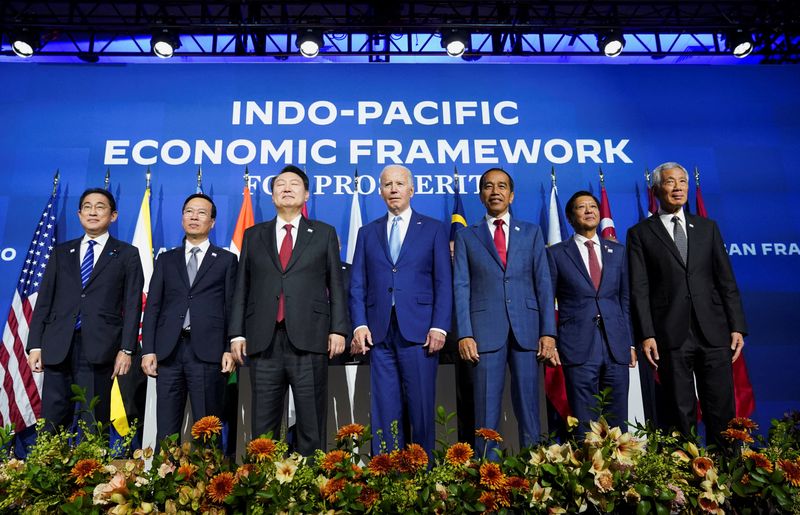SAN FRANCISCO (Reuters) - The Asia Pacific Economic Cooperation members on Friday adopted new trade and investment principles that seek to boost environmental sustainability and social well-being after China dropped its objections to the U.S. proposal.
The so-called "San Francisco Principles on Integrating Inclusivity and Sustainability into Trade and Investment Policy" are aimed at considering "economic, social and environmental dimensions in a balanced way" in APEC members' policies.
Here are some of the key elements of the principles, according to a statement issues at the close of the U.S.-hosted APEC leaders' summit in San Francisco:
-- Incorporating environmental sustainability and social inclusivity into the development and application of trade and investment policies to support "strong, balanced, secure and inclusive economic growth, positive environmental outcomes and social well-being of our peoples.
-- Fostering the use of open, transparent, predictable and participatory processes when developing policies. This includes making information available on issues under consideration, and holding public consultations, particularly with small businesses, women, indigenous peoples and other groups.
-- Strengthening APEC cooperation on trade and investment in environmental goods and services to support the clean energy transition
-- Deepening the understanding of challenges facing groups with "untapped economic potential" to access trade and investment opportunities.
-- Strengthening data collection and research on trade and investment policies to monitor economic, environmental and social impacts.
But the final language in the San Francisco Principles accounts for differences among the 21 diverse APEC economies that include China, the U.S. and Brunei.

"The way to achieve economic inclusion and sustainability for each economy may differ depending on what our societies and what our economies look like," according to the APEC statement.
"Measures should consider economic, social and environmental dimensions in a balanced way, in line with economies' circumstances, and should not exacerbate inequalities."